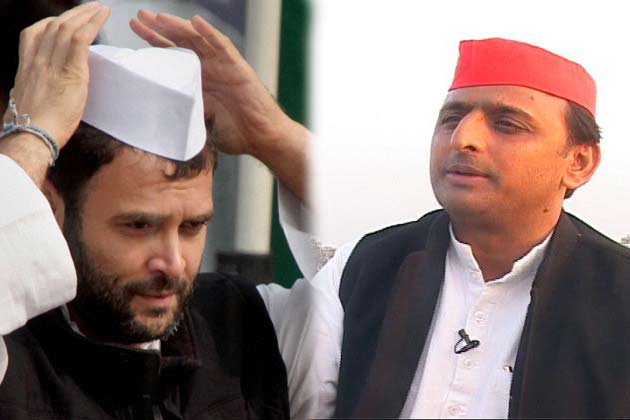
New Delhi, September 11: A lawyer on Monday told the Supreme Court that a 2011 rape and wrongful confinement case against Congress leader Rahul Gandhi in Allahabad High Court was filed at the instance of Akhilesh Yadav, the current Uttar Pradesh chief minister.
An apex court bench of Justice BS Chauhan and Justice Swatanter Kumar was told this by counsel Kamini Jaiswal in the course of the hearing of a petition by Kishore Samrite who has challenged a high court order directing a Central Bureau of Investigation (CBI) probe against him and imposing a cost of Rs 50 lakh.
The apex court stayed the operation of the high court order in April.
Jaiswal, appearing for Samrite, told the court that he had received instructions from Pandara Road asking him to move the high court for implicating Rahul Gandhi.
When Justice Swatanter Kumar sought a clarification on the Pandara Road dimension of the case, Jaiswal said that the instruction came from the current chief minister and the leader of the party.
"He (Kishore Samrite) had been given instruction from Pandara Road to file the petition," she said.
"Why don't you disclose (the identity of the person)?" asked Justice Swatanter Kumar.
Jaiswal replied: The "present chief Minister and the leader of the party. I have given this statement to the CBI."
As Jaiswal named Akhilesh Yadav, senior counsel Ratnakar Dash, appearing for the Uttar Pradesh government, denied the involvement of Akhilesh Yadav in the alleged implication of Rahul Gandhi and his friends in the rape case of the girl.
The court adjourned the hearing till September 17 as Dash said that he would like to take instructions and file an affidavit countering the allegation.
Rahul Gandhi in an earlier affidavit had denied the rape allegation saying: "I emphatically deny the allegation of rape and detention of the writ petitioner by me and say both these allegations are false, malicious and baseless and no cognisance could be taken by any responsible person of such allegations made on a website."
The Congress leader sought the dismissal of the petition challenging the high court order absolving him of the allegation of illegal detention and rape of a girl in his Amethi Lok Sabha constituency in Uttar Pradesh.
Samrite challenged the March 7, 2011 order of the high court by which it directed a CBI probe against him and imposed a cost of Rs 50 lakh on him.
The high court ordered that out of Rs 50 lakh cost, Rs 25 lakh were to be paid to the girl who was named as the alleged victim, Rs 20 lakh to Rahul Gandhi and Rs 5 lakh to Uttar Pradesh Police for tracing the alleged victim.
Jaiswal recounted the sequence of steps taken by Samrite in making representation to the governor, the then chief minister, assembly speaker, the National Human Rights Commission and the National Commission for Women.
Justice Chauhan observed that in this case except for the affected parties everyone was active. "The real people are not coming and others are coming either for publicity or to serve some other people."
Jaiswal said that "there can be no smoke without fire. If there was nothing then how could so many things happen".
Taking note of the great urgency with which the CBI acted, Justice Chauhan observed: "In this case every one acted in great urgency. Police and even the registrar of the high court."






Comments
Add new comment